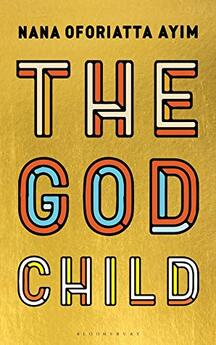The Topeka School by Ben Lerner
At work in the internationally renowned Foundation, his parents also draw on language in uncommon ways. His father’s research on speech shadowing turned words to gibberish while, as therapists, they know that silence can be more powerful than speech. Jane, his mother, is famous for her feminist writings, which elicit frequent dirty phone calls and envious attacks from former friends.
Set mostly in 1997, when Adam is a high-school senior, the story moves backward and forward in time, ending with a contemporary scene about taking his four-year-old daughter to a protest against America’s incarceration of refugee children. In addition to Adam’s perspective, we also visit the family from both parents’ points of view. This adds richness to the narrative; Jane’s thread, articulating her childhood wounds and problematic adult friendship, is particularly well realised.
We also see the Topeka community through the eyes of one of Adam’s damaged peers. A misfit since early childhood, Darren struggles increasingly with the boundary between reality and imagination with – despite some sessions with Adam’s father – disastrous consequences. Although what exactly happens is left a little vague – at least to me – it’s clear that the finance model for American health care – additional intensive treatment was available for those with the dollars or insurance to pay for it – and the false friendship of Adam’s peer group contributed to the tragedy.
I’m always interested to come across more fictional therapists, and especially clinical psychologits; these, like Ruth in A Good Enough Mother , showing that psychological insightfulness doesn’t remove the risk of parenting mistakes. The blatant blurring of boundaries within the Foundation, with staff receiving therapy from their friends, supervisors or superiors, was reminiscent of the claustrophobic Jerusalem psychoanalytic institute in The Saturday Morning Murder.
As you may know, I often come down hard on unrealistic portrayals of psychotherapists in novels but, having based his characters and their work setting on his own parents and their careers at the Menninger Foundation, famous for pioneering the biopsychosocial model and milieu therapy, Ben Lerner knows what he’s about. Indeed, the entire novel blends memoir and fiction, a trend I don’t usually admire, but it seems to work here.
Turning to this novel amid the shock of the recent general election result, I couldn’t tell if I was reading through grey-tinted glasses, especially in finding parallels between Adam’s debating style and the uglification of political rhetoric on both sides of the Atlantic. Was this a novel about machismo and parenting, or something more? (Not that that wouldn’t be enough!) The last line confirmed to me it’s about public discourse within the contemporary political landscape: how we got here and the need to use our voices to call out evil. While never difficult, I doubt I ‘got’ every nuance of this deeply intelligent novel, but I’m glad to have read it, grateful to the author and to British publisher Granta who provided my review copy.
The God Child by Nana Oforiatta Ayim
When Maya’s cousin Kojo comes to live with them, she feels she has an ally at last. And someone who can teach her about the country’s history and why her parents seem so eccentric compared to those of her friends. A move to England furthers this process, although bridging the gap between the cultures of their public schools and their extended family proves a challenge. How can they mix with the offspring of the colonialists who have spirited their country’s treasures away?
Visiting Ghana as an adult, Maya is disturbed by the inequalities enabling her mother’s comfortable lifestyle and longs to understand the country from Kojo’s point of view. But he, on a political and spiritual journey, has little time to spare. By the time she realises how troubled he is, it might be too late to save him.
A tale of stolen artefacts and a family damaged by colonialism, Nana Oforiatta Ayim’s debut makes few concessions to Westerners’ lack of knowledge of their own contribution to the destruction. While I respect her choices, it left me somewhat disorientated once her characters left Germany for the first time. Thanks to publishers Bloomsbury for my review copy.
For other recent reads on African colonialism, see The Old Drift and She Would Be King. And for novels specific to the history of Ghana, including the horrors of the slave trade, see The Hundred Wells of Salaga and Homegoing.























 RSS Feed
RSS Feed





















